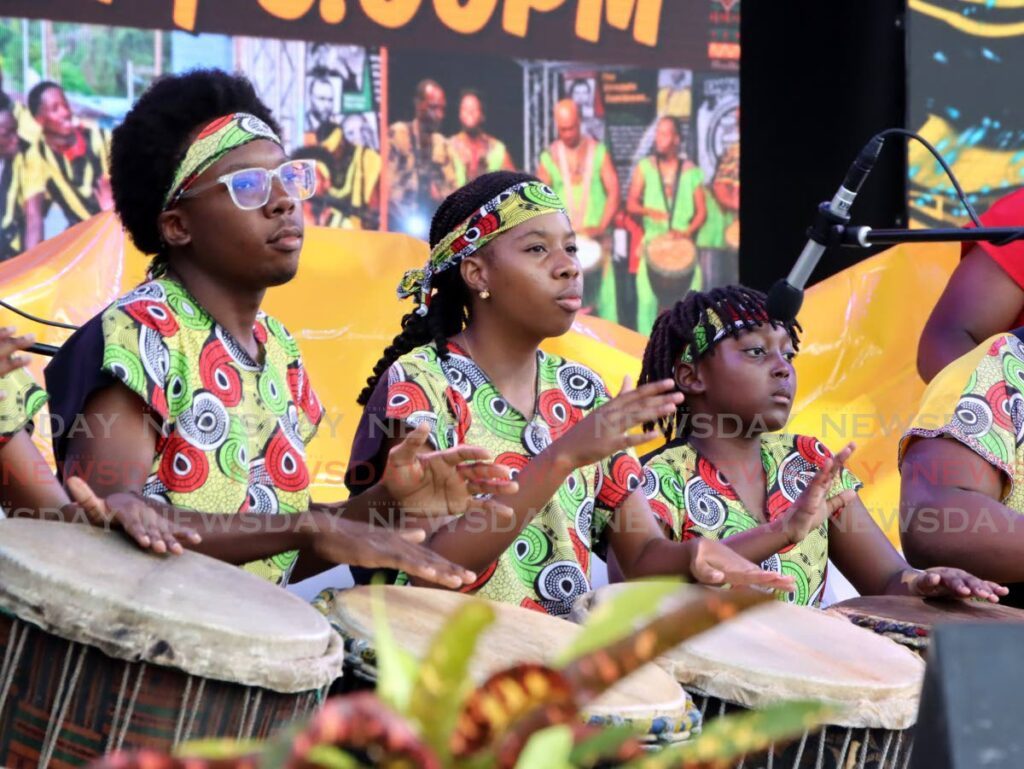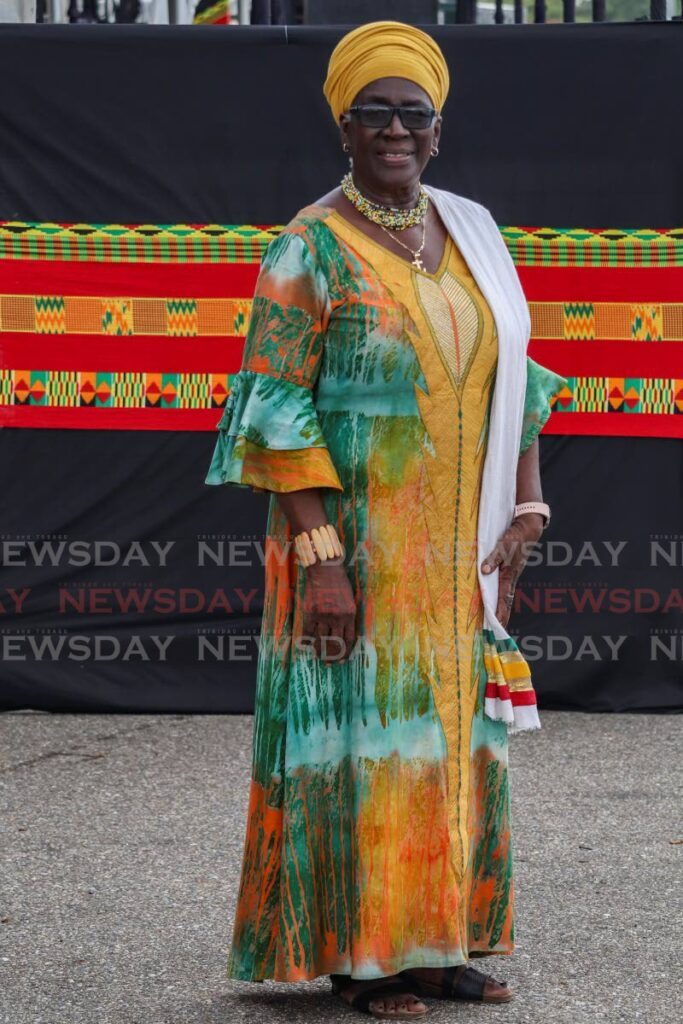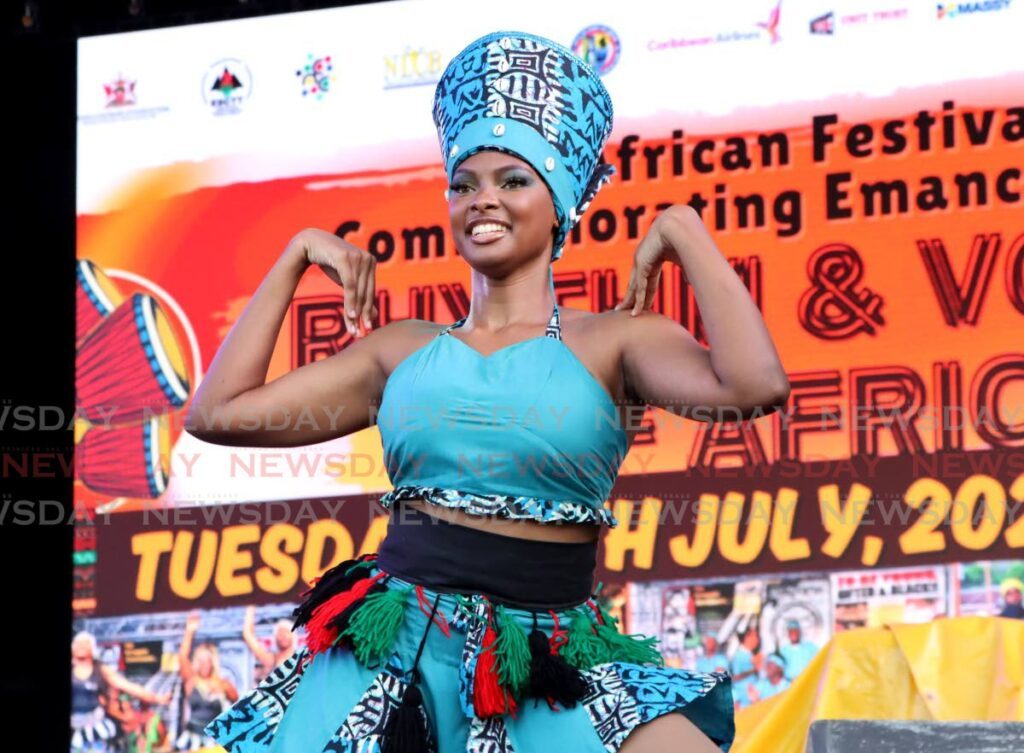ESCTT chair: Invest more in culture, communities to combat crime

Emancipation Support Committee of Trinidad and Tobago (ESCTT) chairman Zakiya Uzoma-Wadada did not shy away from addressing concerns of crime and criminality heavily affecting areas populated by the descendants of enslaved African people.
While she admitted that it appeared that way, she believed the root causes of these issues were not being adequately addressed.
“We are not trying to understand the problem and when activists like ourselves try to put forward the issues, people say, 'You are making excuses.' No we are not!
“If you are living in a society and 80-90 per cent of that particular population are the ones who are imprisoned in a society, something is wrong. Not only with the people who are committing the thing, but it is what is happening in the society that is creating an environment that facilitates that kind of behaviour and interaction between people.”
In an interview at the Queen’s Park Savannah, as workers busily readied the space for the Pan African Festival, Uzoma-Wadada said while Emancipation has been observed for 186 years, the process was still an ongoing one.

The Emancipation observance was important so people could remember that other humans thought it was acceptable to treat people that way.
She said a lot of attitudes in how others dealt with darker-skinned people and even how they dealt with themselves remained affected by the colonial and enslavement experience.
Even though enslaved people were emancipated, the process was not complete and each generation faced challenges related to that, she said.
Problems like white supremacy persisted despite emancipation, Wadada added.
She referenced the words of Ethiopian emperor Haile Selassie echoed through Jamaican reggae legend Bob Marley, saying until the philosophy which holds one race superior to another was finally and totally discredited and abandoned, there was always going to be war.
“We will have war on the world’s stage, we will have war in our communities, there will always be war, and this culture of violence will continue to be part of our reality.”
Wadada said the violence manifesting among Afro-Trinidadians was not the only violence that existed, but was the most visible.
“We know crime takes place at all levels in our society.”
However, Afro-descended people always had to fight, she said.

“For your freedom, you had to fight. Therefore, at every step in the trajectory of our development – as enslaved people in this Diaspora – we have had to fight. Fight just to be yourself, fight to be considered equal, fight to get equitable access to the resources.”
Societies which experienced colonial oppression have gang violence as part of their experience.
“Gang violence is not limited to TT,” Wadada said.
Values of money and power superseded honesty and kindness, and often, people spoke about these but did not act on it, she added.
“If, as a person, your value is linked to money and power and you’re not valued otherwise, of course you are going to fight for money and power even among yourselves.”
There needed to be a cultural shift to combat negative values, and Afro-Trinidadian children needed to be filled with an understanding of themselves and history.
This was why culture and its promotion was so important, Wadada said.
“Those young people who you get involved in playing pan or who you get involved in playing the drum or dance, theatre and so on, where they are learning to connect with energies that can empower them, strengthen them and make them feel good about themselves.”
Wadada said while people were once prioritised by money and power, it was now by owning a gun.
“This is what they are using to feel empowered, to feel like somebody.”
This was why the committee focused on having the Pan African Festival each year, to encourage Afro-Trinidadian youth in positive behaviours.
Afro-Trinidadian children responded to the environments in which they were placed and people needed to be “real sympathetic and understanding” of what some of these children went through, she said.
“These are the things we have to use our resources to do: check out what is happening in our communities, what is happening in our homes.
“The homes are going to build the community and the community will build the society. We have to think about it differently, approach it differently, and not just decide they are 'cockroaches' or they are just worthless beings.”
Wadada said these people were once all little babies, who came from their mothers and everyone thought they were so cute.
“They came to meet a world we created. That is what we allowed. That is what we never stopped from being,” she added.
Wadada questioned TT’s crime-fighting sociological programmes and whether they were being evaluated.
“That is not working. We are not evaluating. We are not saying, ‘We tried this. This was the result. This part of it worked, this part of it did not work.’
“All of us who are trained, we understand that is how we do things. When we become people in power, there are, perhaps, different things that motivate our decisions. But it is not always for the well-being of the communities, in that deep, true and sincere way,” she said.
Wadada recommended that more of the country’s resources be invested in culture and communities. Culture and attending to people’s social issues and needs changed lives, she said.
“Why don’t we want to make everywhere beautiful for everybody?”
Wadada said it was never felt that darker-skinned people and the descendants of slaves deserved the same beauty as others, and these things affected how people feel.
She suggested reframing and rebuilding some spaces in the country since beautiful spaces were not just about physical infrastructure but the incorporation of nature, the aesthetics of a space which affected the hearts and minds of people.
These were the kinds of conversations that needed to be taking place in the country, she said.
Even at 186 years of emancipation, TT’s biggest challenge was still decolonisation. While consciousness has grown globally and nationally through movements like Pan Africanism and TT’s own 1970 revolution, institutional racism still heavily affected many.
Some banks (one named) did not support emancipation, even though it grew out of the 1970 revolution, and these things concerned her. A better and different TT could not be built on colonial values and systems, she said.
Even despite these, the committee’s work continues, she added.
Its 2024 theme was Moving Forward with our Heads Up, and meant that darker-skinned people needed to keep paying attention, or else a sad, sad world would be created for their children nationally and globally, Wadada said.

Comments
"ESCTT chair: Invest more in culture, communities to combat crime"